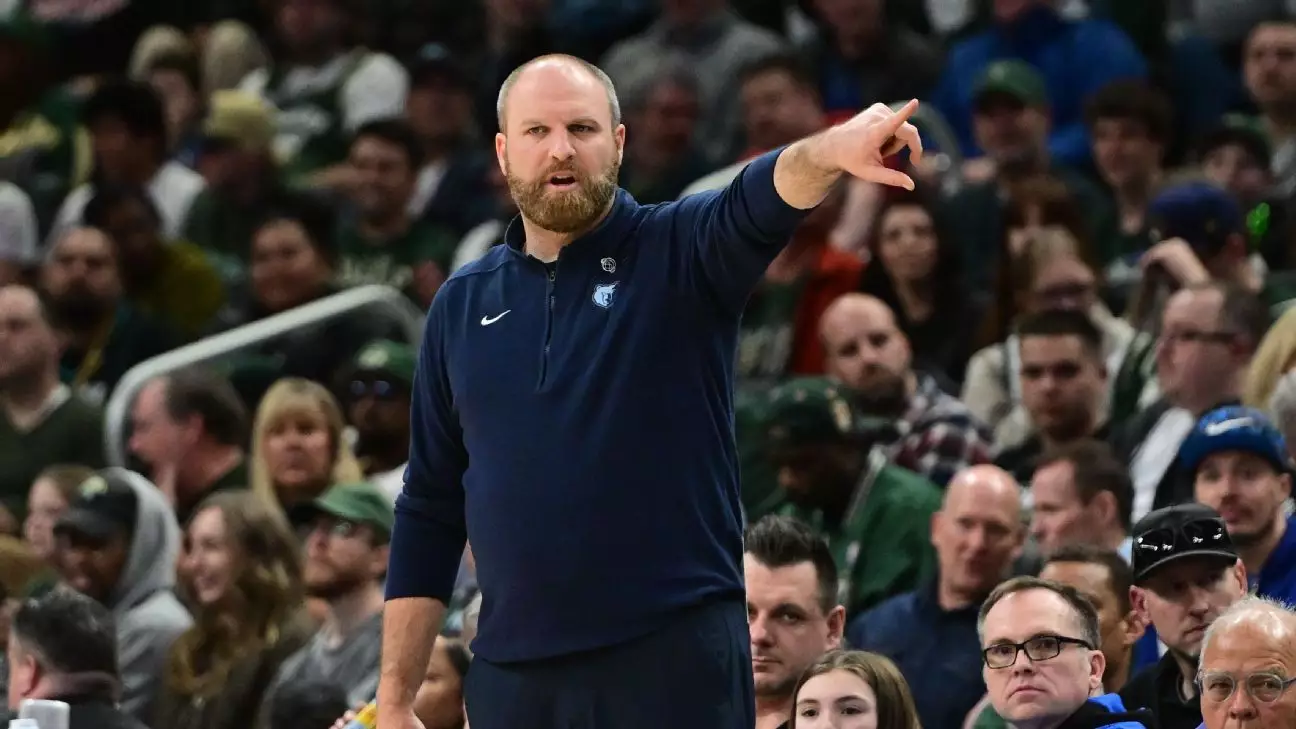The landscape of professional sports is often characterized by fleeting success and abrupt endings, and the Memphis Grizzlies’ recent decision to fire head coach Taylor Jenkins is a telling example of this reality. On the surface, Jenkins’ tenure as the winningest coach in franchise history might suggest stability and progress. However, the underlying issues that contributed to this monumental decision expose the inherent volatility within competitive sports. As the Grizzlies’ rollercoaster season unfolds, the dismissal of Jenkins reveals a sharper focus on performance metrics that highlight an inconsistent ability to capitalize on opportunities against top-tier teams.
Performance Under Pressure
Jenkins’ departure is arguably a manifestation of the Grizzlies’ inability to maintain momentum during a critical juncture in the season. With the postseason looming large, Memphis was facing a precarious positioning in the playoff race. Losing four out of five games, including a disappointing performance without star player Ja Morant, showcased a team struggling to find its identity when it mattered the most. The team’s record since the All-Star break indicates a sharp decline, further complicating the landscape as they gear up to face formidable opponents like the Los Angeles Lakers. It begs the question: had Jenkins lost the locker room, or was it merely a case of injuries catching up with the team at the wrong time?
Grizzlies’ Ambitious Vision Hampered by Realities
It’s essential to assess the broader ambitions of the Grizzlies’ organization and how Jenkins’ coaching philosophy aligned with their vision. Jenkins introduced an innovative offense aimed at maximizing spacing, fluctuating between making bold adjustments and falling into patterns of error-prone play that ultimately defined the season. The fact that most of Memphis’s success came against teams with subpar records only reinforces the notion that they struggled to compete against high-caliber opponents, ultimately dooming their playoff aspirations. With only one postseason series win to his name during his six-season stretch at the helm, Jenkins’ tenure blurred the lines between offensive innovation and consistently effective execution.
The Weight of Expectations and Missteps
Moving beyond the immediate implications of Jenkins’ firing, it becomes clear that the expectations placed on him were inherently high due to the young talent on the roster, particularly Ja Morant. After undergoing a dismal 27-55 season marred by injuries and disciplinary issues, the expectations for a turnaround were monumental. Despite Jenkins bringing the team back from those dire circumstances, the failures against winning teams, with an alarming 11-20 record, added pressure that any coach would find arduous. Moreover, the higher-ups in the organization, represented by GM Zach Kleiman, faced a conundrum of balancing the potential for growth against the need for immediate success in a performance-driven league.
The Complexity of Coaching Dynamics
Coaching in the NBA is a complex interplay of strategy, psychology, and motivation; therefore, Jenkins’ departure cannot be reduced to a single narrative of failure. His respectful dismissal statement highlights an ongoing struggle to harmonize player development with competitive success. While Jenkins has undeniably laid down a framework that saw players grow, this growth did not translate into victories when facing tougher opponents. The inherent pressure from the front office and fanbase to turn potential into performance reveals a larger narrative about accountability in professional sports—one that often sacrifices patience on the altar of immediate results.
A Bright Future, Despite Uncertainty
With Jenkins no longer at the helm, the future of the franchise hangs in a delicate balance. The decision to let him go may signal a renewed commitment to achieving greater heights but also puts the onus on the next coaching hire to unlock the potential of a promising roster. While the team is not yet in the depths of a full rebuild, there lies an urgency to re-establish its competitive identity. As they move forward without Jenkins, the Grizzlies must reconcile their aspirations with the practical realities of the NBA landscape, ultimately leading to a pivotal moment for the organization. The immediate results of this decision remain to be seen, and whether it yields a resurgence or further tumult may define Memphis basketball in the years to come.


Leave a Reply